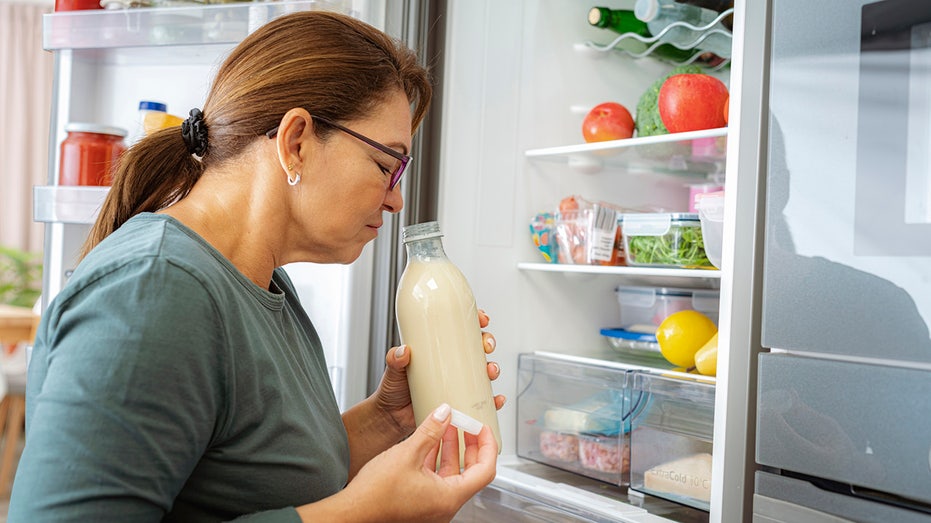
With food prices inflated but Thanksgiving leftovers still sitting in the fridge, what should people do with this food? Food safety experts shared their insights on the issue.
With the inflated price of groceries today, people might be wondering how much they can kick the can when it comes to the expiration dates of an array of items.
Some might recall the saying, “When in doubt, throw it out.” But when can something be eaten safely past its expiration date? And are those Thanksgiving leftovers still safe to eat today?
Food safety experts shared insights.
PROTECT YOURSELF AGAINST E. COLI AND KNOW WHEN TO SEE A DOCTOR
“When in doubt, throw it out” is a rule for a reason, New York-based food writer Alice Knisley Matthias told Fox News Digital.
Trust your instinct, she said, because “the nose knows.”
“An off-putting smell from a dairy product, canned or packaged item is cause for concern,” she said.
Additionally, just because food is canned or jarred does not mean it is safe to eat, she said.
“Cans that are bloated or dented looking are showing signs of being off,” she said, and should not be consumed.
“Opened packages or packages that look frayed or gnawed through should be avoided,” she added, as they may be contaminated.
KEEP YOUR KITCHEN BACTERIA-FREE WITH THESE FOOD SAFETY TIPS FOR HOME COOKS
Canned and jarred goods should have a “pop” if they are open for the first time, Matthias said.
If they don’t, this means that the seal could have been broken – putting a person at risk.
Trevor Craig, a food safety expert at Microbac Laboratories, agreed with these takes.
“‘When in doubt, throw it out’ might seem wasteful, but it is often the best choice when it comes to food safety and your health,” Craig, who is based in Pittsburgh, told Fox News Digital.
A major issue is that foodborne illnesses tend to be downplayed, “with many assuming the worst outcome is a few hours of stomach discomfort,” he said.
“In reality,” he said, “foodborne illnesses can lead to severe and long-lasting health issues, hospitalization or even death, especially for vulnerable populations like the immunocompromised, young children and the elderly.”
He noted that the risks can extend even to healthier populations.
It is simply too big of a gamble to rely on things like “it looks fine,” Craig said.
“You can’t see bacteria and taking chances isn’t worth risking you or your family’s health,” he said.
ARE ONIONS SAFE TO EAT AFTER THE E. COLI OUTBREAK? WHAT YOU MUST KNOW
“It’s better to err on the side of caution.”
The one exception to this rule, he said, comes to shelf life and expiration dates. These things, he said, “often measure quality, not safety.”
“Some unopened containers that are past the expiration date might be fine to eat but won’t [be] as high quality. It all depends on the product,” Craig said.
“For example, a box of cereal is probably fine, but expired meat is best to toss.”
CLICK HERE TO SIGN UP FOR OUR LIFESTYLE NEWSLETTER
Fully cooked foods are also at risk of spreading foodborne illness, Jess Swift Harrell of Washington, D.C., told Fox News Digital.
Swift Harrell, known online as “Chef Dress,” is a classically trained chef, registered dietitian, a published author and an advocate for food as medicine.
“Always check food for signs of spoilage, such as unusual smells, sliminess or changes in texture,” she said.
For more Lifestyle articles, visit www.foxnews.com/lifestyle
For foods that are fully cooked, anything that is kept out of the refrigerator for more than two hours should be thrown away, she said, “as bacteria tends to thrive at room temperature.”
She added, “In terms of your favorite holiday leftovers, I like to recommend eating or freezing leftovers by day three.”
“This will help with preserving flavor, reducing the risk of foodborne illness and cutting down on food waste.”

